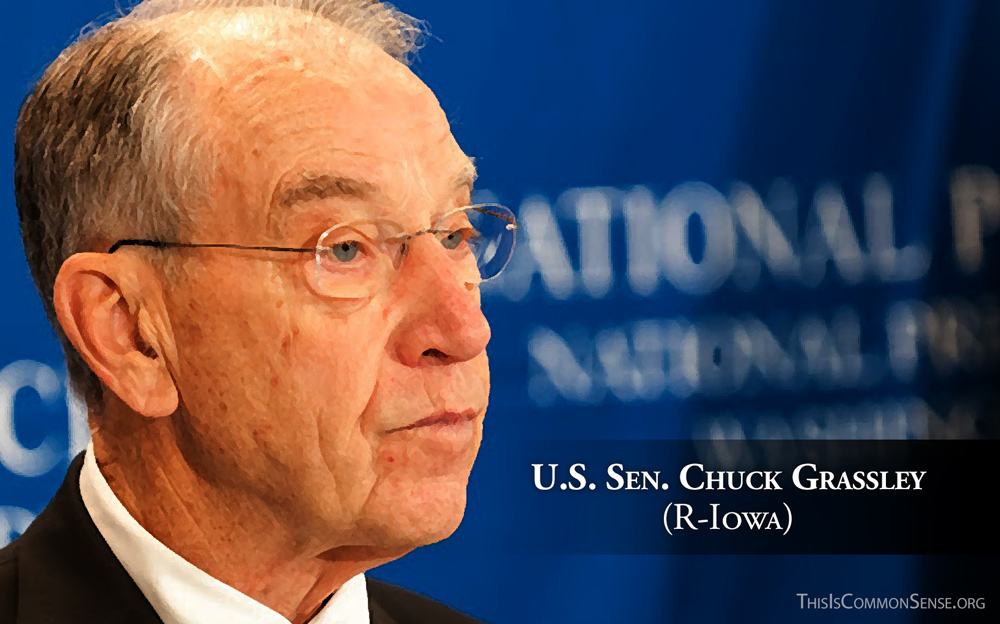As someone who fervently hopes to some day reach the age of 88 — and still actively contribute — I have only heartfelt well-wishes for Chuck Grassley, the senior U.S. Senator from Iowa.
Grassley celebrated his birthday earlier this month. Then, last week, after 59 consecutive years in elected office (six in the U.S. House, 41 years thus far in the Senate, along with 12 prior in the state legislature), the Republican incumbent announced he will be seeking re-election to the U.S. Senate next year.
At 88, Mr. Grassley isn’t the oldest Senator — Sen. Dianne Feinstein (D-Calif.) is three months his elder, and U.S. Rep. Don Young (R-Alaska) owns the title of Oldest Octogenarian in Congress, born 13 days before Feinstein back in 1933.
We all remember Sen. Strom Thurmond (R-SC) turning 100 while supposedly still “serving” in the Senate. That wasn’t pretty.
Grassley, on the other hand, appears in great shape, both mentally and physically — doing 22 push-ups before cameras and a crowd at a recent event.
He would be only 95 years old when completing that full term. And he is very likely to be reelected.
“Grassley has proved to be the most reliable vote-getter in Iowa for the entirety of his four decades in the Senate,” The Washington Post informed, concluding: “Grassley’s candidacy effectively then takes Iowa off the board as a competitive race.”
I have no problem with Sen. Grassley’s age. I do have a problem with the power of incumbency, a system that allows one man to wield power for decades and leaves our elections so much less competitive.
This is Common Sense. I’m Paul Jacob.
—
See all recent commentary
(simplified and organized)




